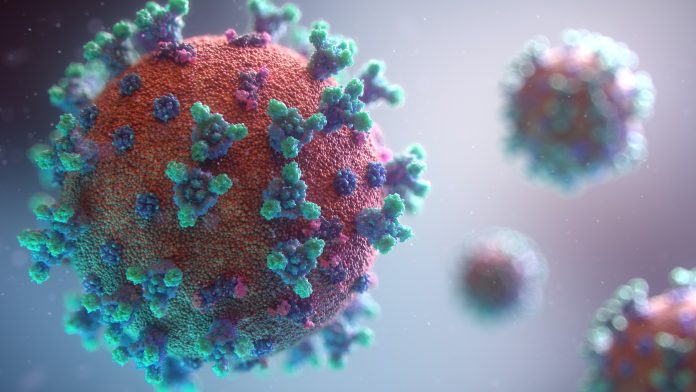
In a study from the National Institutes of Health, scientists analyzed tissue samples from the autopsies of 44 people who died with COVID-19.
They found that the SAR-CoV-2 virus spread throughout the body—including into the brain—and that it lingered for almost eight months.
In the study, the team tested samples from autopsies that were performed from April 2020 to March 2021. They conducted extensive sampling of the nervous system, including the brain, in 11 of the patients.
All of the patients died of COVID-19, and none were vaccinated. The blood plasma of 38 patients tested positive for SARS-CoV-2, three tested negatives, and plasma was unavailable for the other 3.
Thirty percent of the patients were female, and the median age was 62.5 years. Twenty-seven patients (61.4%) had three or more comorbidities. The interval from symptom onset to death was about 18.5 days.
The researchers found that SARS-CoV-2, as expected, primarily infected and damaged airway and lung tissue.
But they also found viral RNA in 84 distinct body locations and bodily fluids, and in one case they isolated viral RNA 230 days after a patient’s symptoms began.
The researchers detected SARS-CoV-2 RNA and protein in the hypothalamus and cerebellum of one patient and in the spinal cord and basal ganglia of two other patients.
But they found little damage to brain tissue, “despite substantial viral burden.”
The team also isolated viable SARS-CoV-2 virus from diverse tissues in and outside the respiratory tract, including the brain, heart, lymph nodes, gastrointestinal tract, adrenal gland, and eye.
They isolated the virus from 25 of 55 specimens tested (45%).
These findings demonstrated virus replication in multiple non-respiratory sites during the first two weeks following symptom onset.
The team says finding viral presence throughout the body helped scientists explore a link between widely infected bodily tissues and “long COVID,” or symptoms that persist for weeks and months after infection.
If you care about COVID, please read studies about the cause of severe COVID symptoms, and new evidence on rare blood clots after COVID-19 vaccination.
If you care about dementia, please read studies about how the Mediterranean diet could protect your brain health, and Vitamin B supplements could help reduce dementia risk.
The study was conducted by Daniel Chertow et al and published in Nature.
Copyright © 2023 Knowridge Science Report. All rights reserved.



